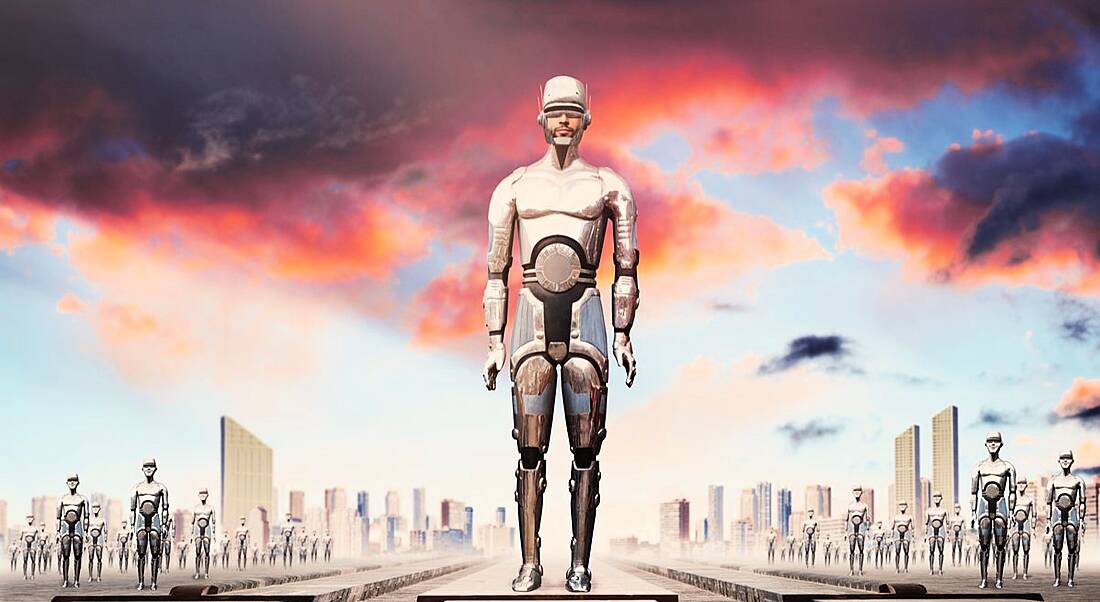How will AI affect tech jobs and the future of work? Hays’ Adam Shapley says humans should not be concerned about a robot takeover.
From driverless cars to Siri, artificial intelligence (AI) has started to impact almost every industry and every part of our lives, as its availability and scalability rapidly increases.
Many scaremongers have jumped to the conclusion that this will cause a human capital crisis and machines will replace human workers. But, when you look at certain industries and sectors – such as digital technology, for example – the opposite is actually true.
A quick history lesson
Let me explain how with a quick history lesson. The four industrial revolutions are a precursor to the rise of AI.
Under the first industrial revolution, mechanisation started to replace some factory workers. New forms of manufacturing activity emerged and industrial cities sprung up where the necessary resources were situated. But these machines needed a skilled workforce to maintain them and keep up with their high-volume output.
During the second revolution, mass production was introduced to the world’s assembly lines. Manufacturing outputs scaled up and this incited a level of specialisation and interdependence in manufacturing.
Then, under the third industrial revolution, we saw the automation of repetitive manufacturing processes under well-defined parameters and with minimal human intervention.
Now, as the fourth industrial revolution beckons, we are welcoming robotisation. This goes beyond the automation of the previous industrial age as machines start to perform more complex tasks and can adapt to changing external parameters.
AI is at the forefront of this new industrial revolution. If a machine can intelligently adapt to its environment, then human intervention becomes less necessary. Suddenly, new manufacturing processes that could be dangerous or impossible for a human to conduct are now a possibility, for example.
Outputs will increase both in scale and scope as customisation of products can be achieved with the flick of a switch, as machine autonomy and connectivity increases. However, unlike what has gone before, AI will be integrated beyond the factory floor and into our everyday lives – and this introduces a range of new, exciting recruitment possibilities and job opportunities.
AI has, effectively, rebooted industrialisation. However, we are not dealing with a revolution, but more an evolution, as AI-based applications appear in every aspect of what we do – and this has many interesting implications for the digital tech recruitment sector.
1. Developers who understand AI will be in high demand
Companies around the world will need to find developers with the relevant background and experience to use and develop AI. These candidates do not just need to understand the technical aspects of AI, but also the wider business opportunities.
Developers who can tailor AI applications to enhance companies and optimise business processes will be in huge demand. Recruiters and employers will be clamouring after these developers, and this high level of competition will be reflected in their salaries, too.
2. Increasing need for digital project team members
Team members – such as product owners/managers, channel managers and other highly skilled talent with similar skill sets – will be in equally high demand and able to command equally high salaries.
Agile (or blends of this methodology) is likely to remain the delivery method for AI-based projects, increasing the demand for anyone with Agile knowledge and experience.
3. Increased use of AI and automation in the technology industry
With the increasing use of continuous delivery in modern development environments, the technology industry is already harnessing the benefits of AI and automation, particularly in companies operating within domains such as fintech, IoT and big data.
While this will be no surprise, again this leads to an increasing need for highly qualified candidates who understand and have experience working with these phenomena.
4. Heavy reliance on the tech industry to provide business-ready solutions
Any company seeking to improve efficiency through AI or machine learning will rely heavily on the tech industry to bring them the right solutions quickly and efficiently. This presents a huge opportunity for people working in development.
Although the day-to-day tasks may evolve, the demand for top-quality software engineers that can lead the way in innovation will only increase as AI becomes ubiquitous across multiple business sectors.
5. The challenge of finding and keeping top talent
Businesses must address the mounting challenge of attracting and retaining top talent in an already candidate-short market. With government campaigns focused on driving engagement in technology-based subjects, and getting more women into tech jobs and programming, we can hopefully inspire future generations to fuel the new exponential age.
6. New industries will be born
Countless articles appear every year highlighting the new job roles that didn’t exist 10 years ago, or what tech jobs we can expect to appear in the future. As the use of AI increases, more new applications will come into being and flourish, including those associated with IoT, such as connected homes, smart factories and driverless cars. Yet again, more candidates will be needed with the relevant skills to fuel these new industries.
7. Cybersecurity will be a major focus
With the advent of AI and IoT, there will be an increased need for cybersecurity and the experts who can test and retest systems to ensure their security, provide solutions if a hack should happen, and keep up with the evolving technical landscape to produce future-proofed and secure systems.
8. Increased recruitment by start-ups
We also expect a range of tech start-ups to launch and disrupt a range of industries. These businesses will need a workforce and, if they see exponential growth, then this workforce needs to be recruited quickly.
The gig economy, freelancers and contractors will benefit from the flexibility they offer to these start-ups. However, as we have seen with the recent disputes over the rights of Uber drivers and others in the gig economy, it is equally important for the government and unions to protect the rights of every worker, regardless of how they are employed.
So, what needs to be done?
Human workers have survived and thrived through three industrial revolutions and I see no reason why this latest one will be any different. To limit the negative impact of AI and maximise the positives, we need to upskill workers, start grassroots training programmes and look at how regulations can be used to safeguard workers.
Then, we will be able to effectively harness AI and transition into a new age where continual innovation will create more and more tech jobs and opportunities in this brave new world.
By Adam Shapley
As a member of the operations management team across Australia and New Zealand, Shapley is responsible for the strategic direction of the Hays Information Technology specialism across the region.
A version of this article originally appeared on Hays’ Viewpoint blog.




